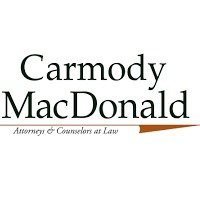Best Sustainable Finance Lawyers in United States
Share your needs with us, get contacted by law firms.
Free. Takes 2 min.
Or refine your search by selecting a city:
List of the best lawyers in United States
About Sustainable Finance Law in United States
Sustainable finance refers to financial activities that take into account environmental, social, and governance (ESG) factors in investment decisions and business operations. In the United States, sustainable finance law is an evolving field focused on promoting environmentally responsible investment, corporate transparency, and ethical business practices. This area of law intersects with securities regulation, corporate governance, banking laws, and climate policy, encouraging businesses and investors to consider the broader impact of their financial decisions. The United States has seen increasing interest in aligning financial systems with sustainability objectives, resulting in new regulations, guidance, and voluntary frameworks that promote ESG disclosures and responsible investment.
Why You May Need a Lawyer
Navigating sustainable finance can be complex due to the patchwork of regulations, voluntary standards, and market practices. Individuals and businesses may require a lawyer in several situations, including:
- Understanding new or existing ESG reporting requirements
- Ensuring compliance with federal and state disclosure laws
- Drafting and reviewing green bonds, social bonds, or other sustainable finance instruments
- Addressing shareholder inquiries or activism related to sustainability
- Dealing with regulatory investigations or enforcement actions
- Mitigating risks related to greenwashing or misrepresentation of ESG practices
- Advising on mergers, acquisitions, or financing with sustainability conditions
- Navigating stakeholder and community engagement in environmental or social impact projects
Engaging an attorney experienced in sustainable finance law helps ensure compliance, reduces risk, and maximizes the benefits of sustainable investment strategies.
Local Laws Overview
Sustainable finance in the United States is subject to a mix of federal, state, and industry-led rules. Some of the most relevant legal aspects include:
- SEC ESG Disclosure Requirements: The Securities and Exchange Commission has issued guidance and proposed rules requiring public companies to disclose certain climate-related risks and ESG information for investor transparency.
- Green Bond Standards: While there is no single federal green bond law, the market is governed by both SEC regulations and voluntary frameworks such as the Green Bond Principles.
- State Initiatives: Various states, such as California and New York, have advanced stricter climate disclosure rules and sustainability goals, often exceeding federal standards.
- Banking and Lending Regulations: Federal agencies such as the Office of the Comptroller of the Currency are incorporating climate risk assessments into their regulatory frameworks for banks and lenders.
- Anti-Greenwashing Rules: The Federal Trade Commission enforces laws against deceptive marketing, including false claims regarding ESG or sustainability practices.
- Voluntary ESG Reporting Frameworks: Many US companies follow voluntary standards such as the Task Force on Climate-related Financial Disclosures or the Sustainability Accounting Standards Board guidelines.
It is important to understand how these laws and standards apply to your specific business or investment goals, as non-compliance can result in penalties, reputational harm, or litigation.
Frequently Asked Questions
What is sustainable finance?
Sustainable finance involves integrating environmental, social, and governance considerations into financial decision-making, investments, and business operations to promote sustainable economic growth.
Which US agencies oversee sustainable finance?
The primary regulatory agencies include the Securities and Exchange Commission, the Federal Trade Commission, the Environmental Protection Agency, and various state authorities, depending on the issue.
Are there mandatory ESG reporting requirements in the US?
Currently, ESG reporting is mostly voluntary, but the SEC has proposed rules that will make certain climate and sustainability disclosures mandatory for public companies.
What counts as a green bond or social bond?
A green bond is a fixed-income instrument used to raise funds for environmental projects, while a social bond finances projects with positive social outcomes. Both must meet certain criteria and may follow voluntary principles or regulatory guidance.
What is greenwashing?
Greenwashing is when a company exaggerates or falsifies its environmental or social responsibility to mislead investors or consumers.
Can I face penalties for false ESG claims?
Yes. The Federal Trade Commission and the SEC can investigate and penalize misleading or unsubstantiated ESG claims made by companies.
Are private companies subject to sustainable finance laws?
Private companies are generally not required to disclose ESG information, but certain activities, contracts, and investor requirements may trigger legal obligations.
How can I ensure compliance with sustainable finance regulations?
Work with a knowledgeable attorney to understand applicable laws, monitor regulatory changes, conduct audits of your ESG practices, and establish clear internal policies.
How do state and federal laws interact in this area?
Federal laws provide a baseline, but many states have enacted more stringent disclosure and sustainability requirements that apply to companies operating within their borders.
What risks are involved in sustainable finance transactions?
Key risks include regulatory non-compliance, reputation damage from greenwashing, litigation, financial penalties, and loss of investor confidence.
Additional Resources
For those seeking further information or assistance with sustainable finance in the United States, consider the following resources:
- Securities and Exchange Commission (SEC) - ESG resources and public company reporting guidance
- Federal Trade Commission (FTC) - Guidelines on environmental marketing claims
- Environmental Protection Agency (EPA) - Climate policies and sustainable practices information
- Sustainability Accounting Standards Board (SASB) - ESG reporting frameworks
- US Green Building Council - Green finance and building initiatives
- Principles for Responsible Investment (PRI) - Global network and tools for sustainable investors
- Local state environmental and financial regulators
Next Steps
If you require legal assistance with sustainable finance in the United States, start by:
- Identifying your specific needs, whether compliance, disclosure, or sustainable transactions
- Gathering all relevant documents and information regarding your business or investment activities
- Researching experienced attorneys or law firms that specialize in sustainable finance and ESG matters
- Requesting an initial consultation to discuss your questions or concerns
- Staying informed about new rules and best practices in sustainable finance
Taking proactive steps with knowledgeable legal support helps ensure compliance, fosters responsible growth, and positions you benefit from the opportunities that sustainable finance offers.
Lawzana helps you find the best lawyers and law firms in United States through a curated and pre-screened list of qualified legal professionals. Our platform offers rankings and detailed profiles of attorneys and law firms, allowing you to compare based on practice areas, including Sustainable Finance, experience, and client feedback.
Each profile includes a description of the firm's areas of practice, client reviews, team members and partners, year of establishment, spoken languages, office locations, contact information, social media presence, and any published articles or resources. Most firms on our platform speak English and are experienced in both local and international legal matters.
Get a quote from top-rated law firms in United States — quickly, securely, and without unnecessary hassle.
Disclaimer:
The information provided on this page is for general informational purposes only and does not constitute legal advice. While we strive to ensure the accuracy and relevance of the content, legal information may change over time, and interpretations of the law can vary. You should always consult with a qualified legal professional for advice specific to your situation.
We disclaim all liability for actions taken or not taken based on the content of this page. If you believe any information is incorrect or outdated, please contact us, and we will review and update it where appropriate.
Browse sustainable finance law firms by state in United States
Refine your search by selecting a state.
















